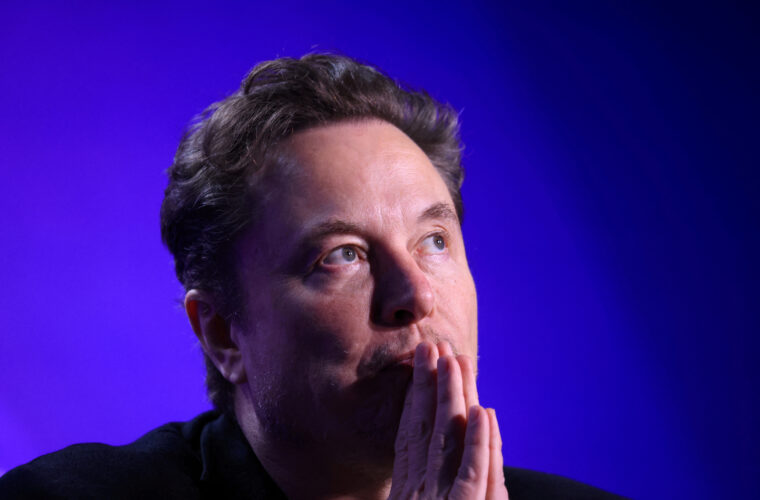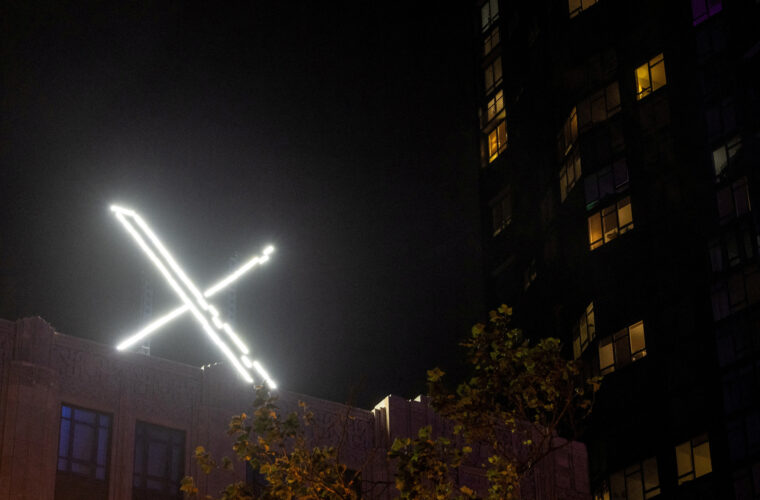Elon Musk: The day after Elon Musk’s decision to cancel the Twitter acquisition will be very messy and chaotic.
Twitter’s share price fell 11.3% to $32.65 (€32.58), down 40% from the price of $54.20 (€54.09) under Musk’s takeover offer. The share price subsequently recovered by less than 1%. This is the most significant daily decrease in the price of the company’s shares in a period longer than 14 months.
Tesla’s stock price fell by about 7%.
Elon Musk claims he decided to end his deal to buy Twitter because the company had violated several merger agreement provisions by not providing all the data on spam bots he wanted. Musk also said that Twitter’s claims about the accuracy of its spam-account estimates are likely to cause “a Company Material Adverse Effect, which may form an additional basis for terminating the Merger Agreement.”
“Mr. Musk is also examining the company’s recent financial performance and revised outlook and is considering whether the company’s declining business prospects and financial outlook constitute a Company Material Adverse Effect giving Mr. Musk a separate and distinct basis for terminating the Merger Agreement,” Musk said in the statement sent to Twitter.
Twitter fires back at Elon Musk
Twitter disputes this claim, and the two sides will now settle their differences in the courtrooms. In a tweet posted shortly after Musk’s announcement, Twitter Chairman of the Board Bret Taylor said the company would sue to force the deal to close.
“The Twitter Board is committed to closing the transaction on the price and terms agreed upon with Mr. Musk and plans to pursue legal action to enforce the merger agreement. We are confident we will prevail in the Delaware Court of Chancery,” said Bret Taylor.
Musk – known as a famous meme internet troll – responded to Twitter’s threat to sue him over reneging on their deal with a meme; just after Twitter’s response, Musk posted a meme showing the celebrity CEO laughing at the latest turn of events, which got more than 1 million likes.
“To be continued” in the courts
Twitter told Elon Musk in a letter that his “purported termination” of their merger deal ‘is invalid and wrongful” and that his commitment to funding the purchase remains in effect.
“Mr. Musk’s and the other Musk Parties’ purported termination is invalid and wrongful, and it constitutes a repudiation of their obligations under the Agreement. Contrary to the assertions in your letter, Twitter has breached none of its obligations under the Agreement, and Twitter has not suffered and is not likely to suffer a Company Material Adverse Effect. The purported termination is invalid for the independent reason that Mr. Musk and the other Musk Parties have knowingly, intentionally, willfully, and materially breached the Agreement, including but not limited to Sections 6.3, 6.8, and 6.10 thereof,” said Twitter in the letter.
“As it has done, Twitter will continue to provide information reasonably requested by Mr. Musk under the Agreement and diligently take all measures required to close the transaction. Twitter reserves all contractual, legal, and other rights, including its right to specifically enforce the Musk Parties’ obligations under the Agreement,” the company pointed out in the same letter.
Twitter Inc. has hired the well-known firms Wachtell, Lipton, Rosen, and Katz, which specialize in merger cases. By hiring Wachtell, Twitter gains access to attorneys such as Bill Savitt and Leo Strine, who served as the Delaware Court of First Instance’s chancellor, where the case will be heard. Twitter appears determined to take Elon Musk to court after backing down on its takeover of the social network.
Elon Musk, for his part, hired Quinn Emanuel Urquhart & Sullivan LLP. The firm led his successful defense of a defamation claim in 2019. It represented him as part of an ongoing shareholder lawsuit over his failed attempt to take Tesla Inc. private in 2018.
Twitter Inc sued Elon Musk for violating the $44 billion deal to buy the social media platform and asked a Delaware court to order Tesla CEO to complete the merger at the agreed $54.20 per Twitter share.
“Musk apparently believes that he – unlike every other party subject to Delaware contract law – is free to change his mind, trash the company, disrupt its operations, destroy stockholder value, and walk away,” said the lawsuit.
The lawsuit accused Musk of “a long list” of violations of the merger agreement that “have cast a pall over Twitter and its business.”
Compromise
Several analysts and legal experts estimate that the two sides will compromise.
“We believe that Elon Musk’s intentions to terminate the merger are more based on the recent market sell-off than… Twitter’s ‘failure’ to comply with his requests. In the absence of a deal, we would not be surprised to see the stock find a floor at $23.5,” Jefferies analyst Brent Thill wrote in a note.
Benchmark analyst Mark Zgutowicz said, “Twitter’s board must contemplate the potential harm to its employee and shareholder base of any additional internal data exposed in litigation.”
As Francis Pileggi, a corporate litigator with Lewis Brisbois in Delaware, underlined, Musk is likely in a trial with Twitter to focus mainly on bots and claim that the company presented a misleading number of fake accounts that exist on its platform. “I would be surprised if he’s prohibited from getting that information,” Pileggi said.
Pileggi also pointed out that if Twitter has lied and the number of fake accounts on the platform is a multiple of 5%, then Musk is likely to enter negotiations to reduce the acquisition price of the social network.
Based on previous merger disputes, attempts to terminate a deal cannot be made within a few months, often resulting in settlements to avoid further dispute.
The contract between Musk and Twitter requires Musk to pay a $1 billion fee to Twitter “if he is unable to complete the deal for reasons such as acquisition financing failure or regulatory blocking of the deal.” However, the fee will not apply if Musk cancels the deal on his own.



